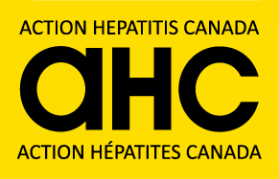Why Focus on Immigrants and Newcomers?
Canada is a multicultural country fueled by immigrants:
Immigrants and newcomers are an important group at increased risk for viral hepatitis:
To achieve viral hepatitis elimination in Canada, we must take a public health- and human rights-based approach to migrant health.
Canada is a multicultural country fueled by immigrants:
- 8.3M immigrants make up 23% of the Canadian population.
- Immigrants account for almost 100% of populations growth and 100% of labour force growth, filling gaps resulting from our aging populations and lower fertility rates.
- Immigration is essential for Canada, providing economic, social, and cultural benefits.
Immigrants and newcomers are an important group at increased risk for viral hepatitis:
- They account for a disproportionate number of Canada’s hepatitis C cases (30%) and hepatitis B cases (up to 70%).
- Immigrants and newcomers face unique barriers to diagnosis and care.
- Early detection and linkage to care, and in the case of hepatitis B, prevention through vaccination, can lead to better outcomes and avoid needless suffering for individuals, elevate the immigrant workforce, and ease the future strain on Canada’s healthcare system by avoiding cases of liver disease and liver cancer.
To achieve viral hepatitis elimination in Canada, we must take a public health- and human rights-based approach to migrant health.
Report Contents
Current State
|
There are no systematic, targeted HBV or HCV screening or health promotion programs for immigrants before or after arrival in Canada.
Despite the high burden of HBV and HCV, immigrants and refugees are less likely to be screened and treated for HBV and HCV. Given the barriers they face to accessing routine health care, there is a missed opportunity for early screening and voluntary engagement in care and treatment. |
|
According to the Immigration and Refugee Protection Act (IRPA), an immigration application can be denied if the applicant is expected to place an “excessive demand” on Canada’s public health care system and is deemed medically inadmissible.
Although both HBV and HCV treatment now fall below the cost threshold, if a person has multiple medical conditions, costs related to viral hepatitis would still be included in the calculation and could contribute to their application being denied. The assessment also can add months or years to the immigration process, acts as a deterrent to immigration in and of itself, and exposes people to discriminatory stigma. |
|
The immigration application includes medical questions mixed in with questions about being a security risk, with an implication that checking ‘yes’ to any may result in an application being denied.
The medical component of the immigration process is so enmeshed with eligibility that immigrants are disincentivized from declaring or voluntarily testing for STBBIs or other health conditions. The long-term societal costs of delayed diagnosis and/or care are significant. |
"My hepatitis B was a bottleneck in my immigration process. A health condition should not stop the process, but if it is important for the government to know about my health condition, don’t stigmatize. The way the question was written on the application, it was clear that if you had any of these conditions, your application might not be successful. Either all immigrants should be tested for these diseases, or they should reword the application so people don’t hesitate to disclose their health conditions." - Ravshan
Recommendations
Acknowledging that a lot of good and important work happens at the community level and through provincial policies, this report focused on policies over programs, and specifically on actions that the federal government could take.
We are making 7 policy recommendations:
We are making 7 policy recommendations:
- Eliminate provisions in immigration legislation that deny entry or stay in Canada based on medical conditions and instead prioritize linking people to care.
- Decouple medical counselling and testing from the immigration application process and instead offer as part of integration services.
- Offer free, universal, voluntary STBBI testing, including HBV and HCV, for the purpose of linking people to care and treatment, and clearly communicate that this is the purpose.
- Provide interpretation services free of charge at all medical appointments as part of the immigration or integration process for people who do not fluently speak the language in which the service is being provided.
- Establish policies to improve the competency of healthcare professionals (including panel physicians) to ensure migrants receive culturally appropriate, non-stigmatizing care and accurate information.
- Amend the eligibility provision of the IFHP so that all migrants, including undocumented migrants, can access publicly funded healthcare. This includes primary care, language services, and referrals to specialists for all IFHP-eligible migrants.
- Update the national HBV vaccination guidelines to recommend birth dose vaccination for all babies, and universal, publicly-funded “catch-up” vaccinations for unvaccinated adults as needed.
Share
Share the following social media graphics with a link back to this page: www.actionhepatitiscanada.ca/immigrationhealth.
You can include the hashtags #HepCantWait #ImmigrationHealth #PublicHealth #cdnpoli
You can also follow AHC on Twitter: @ActionHepCanada
You can include the hashtags #HepCantWait #ImmigrationHealth #PublicHealth #cdnpoli
You can also follow AHC on Twitter: @ActionHepCanada












